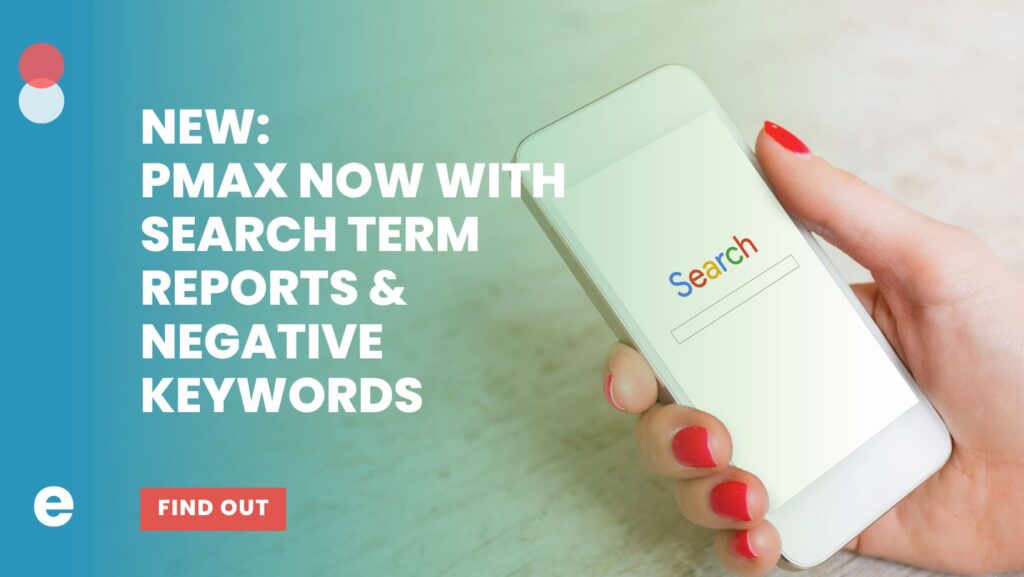The Factors Driving Us Towards Privacy-First?
The Problems That Precipitated It All, or How Did We Get Here
How to Prepare for Privacy-First
The “Don’t Panic” Perspective
The Future & Next Steps
Historical Perspective & Asking The Right Questions
What The Privacy-First Era & Death of 3rd Party Cookies Mean for Online-Marketing and Business
Crumbling Cookies and Privacy-First
Two significant factors are driving the market towards the Privacy-First Era. Privacy for online users is paramount today, and now more than ever. The government is trending toward passing more Privacy Data Protection Laws, as in California’s CCPA [California Consumer Privacy Act] and Virginia through the CDPA [Customer Data Protection Acts and CCPA]. Big Tech [Google/Chrome/Apple] is taking significant steps to ensure it helps protect user privacy, aligning with the trends through FLoC, Chrome Privacy Sandbox, and more.
What about cookies going away? In January 2020, Google Chrome announced that by 2022 it would completely phase out browser support for third-party cookies. [This has since been pushed back to 2023.] The Chrome team said:
“Users are demanding greater privacy–including transparency, choice, and control over how their data is used–and it’s clear the web ecosystem needs to evolve to meet these increasing demands.”
Some of this is good. We all value personal privacy. Most of us have had the negative experience of getting sucked into a click-bait article or site only to back out of the site in annoyance. Yet days, even weeks later, ads or banners follow our every online move. This is the result of bad advertising, usually less scrupulous sites, and unsavvy would-be marketers. Cookie tracking makes everyone’s data accessible with ease. Third-Party Cookies can be sticky and annoying, tracking customers in a war of attrition. Most of these “bad” cookies create a hostile sentiment in the customer and lead to brand resentment. That is never the goal of a quality, professionally planned marketing campaign. Cookies are a creature of the wild west of the online marketing, hacker world. It is time for an upgrade. The death of cookies may be problematic. Still, more than likely will pave the way for a new, brighter future more suitable for the next generation of eCommerce, web-savvy shoppers, and a generation that has grown up with a tablet or mobile device always at hand.
The Problem That Started It All
Cookie-based IDs and the lack of transparency around sharing user data across a spectrum of ad networks, advertisers, and publishers created a problem. There tended to be an issue with self-regulation from some that caused problems for all. That problem is best described as what we call the ‘programmatic display advertising landscape.’
Today you have publisher websites, a marketer who wants to solicit new business, and ad buying technology in between. The tech helps publishers monetize, and the marketers buy efficiently and effectively (programmatic – real-time bidding on ad inventory across the web). So much of it is helpful, from frequency capping to recency control, targeting, to attribution, enabled by these 3rd parties in the middle. These tech options connect what the publisher and marketer might know about the user together at scale for marketing purposes.
Most of these different ad tech platforms have standards around audiences and data, but the standards are very fragmented. We’ve only had digital advertising with full adoption across industries and markets over the last 5 to 10 years. Buyers, agencies, different aggregators, and platforms of all types have many varied interests. There is a ton of speculation and confusion.
(Almost) No One Is Prepared!
That means it’s an excellent opportunity for your business to get ahead of the game! By choosing a leading marketing partner like Enilon, we can guide you to the front of the pack. Together with our connected programs and customer focus, Enilon is already helping prepare the way! Here are just a few steps towards preparedness:
- First-person data is now, and whoever does it best wins. Enilon has expert knowledge in this field. It’s time to take action, seize the data, and use it to win more customers that will increasingly become more concerned about online privacy and security.
- Other tools are being created to bridge the gap, like Google Chrome’s FLoC [Federated Learning of Cohorts]. Enilon is already assessing our current clients and helping them develop individual strategies to prepare for the coming reality. Preparing for the future starts now, not later when you are already behind the proverbial eightball.
- FLoC is supposed to enable “interest-based advertising on the web” while shielding the consumer’s identity from advertisers. People will be associated with a “cohort” of specific demographics like age and location. Thus a FLoC is supposed to be a sufficiently large enough group of users to make you at least semi-anonymous to the companies targeting you.
- Chrome Privacy Sandbox: Built inside Chrome, the sandbox will allocate websites with a “privacy budget.” Websites will be allowed legitimate requests within the sandbox based on various factors to make inquiries from your browser. For instance, a gaming site like Twitch or Steam would be allowed to ask if your browser supports a game controller. Once a website spends its “privacy capital,” the browser will cut the site off from further queries. The sandbox protects personal data while forcing sites to determine the most essential and relevant requests for their needs.
- Customer Opt-In technology and management will need to lead the way. Responsible, reasonable, and responsive marketing based on the mutual respect of customer wishes will be the new way forward.
- Personalization will be crucial in customizing browser experiences based on individual privacy preferences, demographics, and other factors users determine they are willing to share online. In turn, this will shape the future of online marketing as businesses learn to personalize content for similar groups and like-minded cohorts.
The “Don’t Panic” Perspective
Important news! Everyone, everywhere (not just you, but also your competitors) is learning about consumer data privacy changes that are coming to digital advertising. So the two big things we know right now:
- Google stated last year that Chrome would end support for cookies by early 2022. Now it is extended to late 2023. The time frame allows them to work out how to address the needs of users, publishers, and advertisers. As well as develop tools to mitigate workarounds. Do we know if it will actually be 2023? Google is planning for that but the actual date will most likely depend on multiple factors, including government legislation. But we do know it’s coming so it’s best to get prepared for it.
- Google –> Chrome Privacy Sandbox –> Q2 ’21 –> FLoC: The new changes will group people into “cohorts” based on similar browsing behaviors. Thus targeted marketing will use only “cohort IDs,” not individual user IDs, as the means of identifying ad targets. Another way to think is to see these as “affinity groups” or a group of people linked by a shared interest or common purpose.
Why it’ll be ok:
- We all have time to get prepared: (most likely late 2023?)
- Enilon has experts prepared to help you with planning & implementation.
- We have a flexible product specifically designed to support clients as the digital climates change.
It’s a game-changer, but so was a pandemic, and Enilon supported our customers, new and old, with aplomb during the Big Shift and quarantine-induced lockdowns and social-distancing measures.
As your marketing partner, we will evaluate these new guidelines and their impact on your goals and strategies in the coming months. We will continue to share important details and be on the leading edge of relevant changes. We recommend the following article for further research: “Virginia’s Consumer Data Protection Act Signed into Law.”
So What’s Next?
The Privacy-First Era is being ushered in by legislation, coupled with the transition to Chrome Privacy Sandbox and FLoC. So government and Big Tech are reacting to and paving the way for greater identity protection for consumers. The marketing industry is adapting by moving towards Opt-in and Consent-based Marketing strategies and platform development. Which will further transform CMS to become Consent Contact Management and bring on new metrics such as Consent Rate Optimization. This all leads to the BIG marketing question of the future:
How to maximize opt-ins while respecting privacy and personalizing UX?
A Little Historical Perspective
Circumstances change, the vision remains the same. The mission of marketing doesn’t change. The goal has always been and always will be to advertise and market in the most sophisticated way possible to your target audience. Methodologies will come and go. Tactics and strategies will require responsive changes as people’s reception to and perception of certain types of messaging evolve. Marketing methods are in a state of ebb and flow, but the ultimate vision and mission remain the same.
William Caxton created the first known print ad in 1472. Caxton printed ads for a book and tacked them to church doors across England. A mere 232 years later, in 1704, the first newspaper ad in the U.S. was published. The Boston News-Letter posted an advertisement for a Long Island estate looking for a buyer. Jared Bell printed circus posters in 1835 that measured more than 50 square feet, essentially creating the first U.S. billboards. In 1842 Volney B. Palmer opened shop as an advertising “agent,” and the advertising agency was born. Things evolved more slowly back then.
Now we have moved from the analog era to the first stage of digital advertising: newspapers, radio, and television in a century. The new age of digital advertising’s evolutionary track goes through the adoption of the home computer, internet, cellular data transfer speeds, and Internet of Things (IoT) devices. These evolutionary leaps came quicker and quicker in succession leading to digital advertising through device ID and cookie-based ad tracking. We live in the information age, a digital era where change is almost constant. Enilon embraces change. Time is an inevitable obsolescence machine.
In many ways, survival, let alone thriving success, is boiled down to adaptation. How do we adapt best in a changing marketing environment? By asking the right questions:
- How do we protect customers and brands with universal standards?
- How will brands connect to relevant and timely audiences with their products and services in this latest iteration of marketing challenges?
- How do we continue creating more quality interactions between customer and brand?
- Where is the line between interruption marketing vs. relevant, contextual marketing?
- What are companies doing with their collected data that is both ethical and practical?
- How do you use collected data to market to customers and protect the stored data from unauthorized use?
Some specific questions that Enilon is asking our customers right now:
- What do you do with your collected data?
- Is your data management platform flexible or versatile enough to use your data in new ways?
- Is the information you collect actionable?
- Are you regularly asking how to use your data for more effective marketing?
- How are you using customer data in a way that respects customer privacy and customer wishes?
Consider that marketing has both long-term and short-term goals. Change can be daunting in the face of a fast-paced, evolving marketplace. However, with the proper perspective, the right partners, and the right questions, change can become a tool. Throughout history, the right tool at the right time has set competitors, nations, and even civilizations apart. At Enilon, we have the tools [expertise, strategy, experience] to set your business apart from the rest. We can guide you through change to not only survive but thrive as you rise above the crowd and elevate your brand above those of your competitors. Some look on the marketing horizon with fear and trepidation. Enilon meets the horizon with clarity of vision so you can have an expertly efficient and effective partner.


